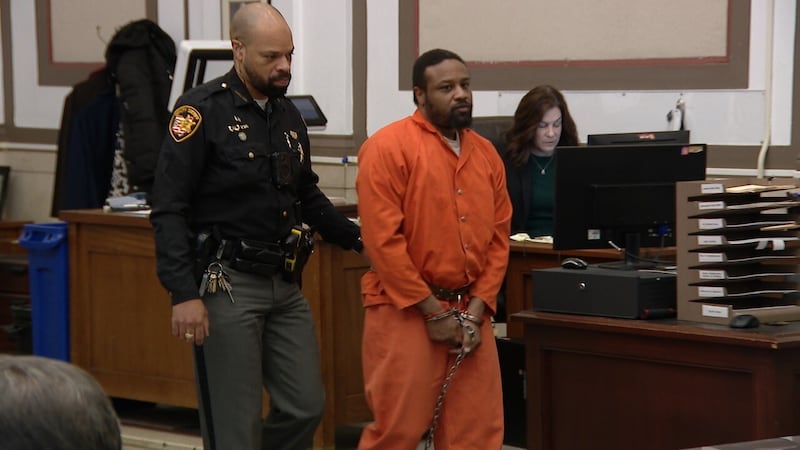DAYTON — The man accused of stabbing a Dayton police officer in the neck has pleaded not guilty to charges filed against him.
Tyler Patrick, 29, of Dayton, made his first court appearance Tuesday. He stood mute at his arraignment and pleaded not guilty to four counts of felonious assault of a peace office and one count each of obstructing official business and resisting arrest. A judge set his bond at $500,000 and a public defender was assigned to represent him.
Patrick’s mother called 911 and asked police to remove her son from the home on Oct. 13. She said he’d been banging on the walls and corners of the house.
>> PREVIOUS COVERAGE: Man accused of stabbing Dayton officer indicted on charges
News Center 7 previously reported that officers worked for 15 minutes to try and convince Patrick to leave with them. When they stepped close to take him to the hospital, Patrick pulled out a pocket knife and stabbed Officer George Kloos in the neck. He was then wrestled down by two officer trying to pull the knife away from him.
Kloos was taken to Miami Valley Hospital where he was treated and released that day.
The incident led to the felony charges against Patrick. While he appeared in Montgomery County Common Pleas Court Tuesday, some residents said they’re not sure that’s where he should end up.
“I think there should be mediation or intervention because once you’re in the court system, that system has to run its course,” Marty Lewis, of Dayton, said.
Lewis told News Center 7′s Mike Campbell that Patrick is far from the only person in these type of circumstances. He also noted that mental health calls, like the one involving Patrick, are tough calls.
“He should be accountable for that,” Lewis said. “I agree with that, but at the same time, we kind of know what precipitated it.”
Montgomery County has worked to be progressive and does have a separate mental health court. To be admitted, a person must have pleaded guilty first to at least one felony charge. That person must also have been diagnosed with a severe mental illness, such as schizophrenia and bipolar disorder. A person could lose eligibility from the mental health court if there is any history of serious or repetitive violence, where any weapons or physical harm was done.
>> Dayton’s largest downtown hotel to close Monday
Some people, like Ronald Duckett, said they’re not sure it would be easy to consider mental health status as part of a defendant’s potential punishment.
“Anyone doing any crime should still be held responsible,” Duckett, of Dayton, said.
He also said that he thinks a lot of lawyers might use that like a possible “get out of jail free” card.
“It is easy for someone to do a crime and say, ‘Oh, it is a mental health problem,’ and that is not fair,” Duckett said.
Currently, the only way Patrick’s mental health could be considered in his case is if he pleads not guilty by reason of insanity.
©2022 Cox Media Group




